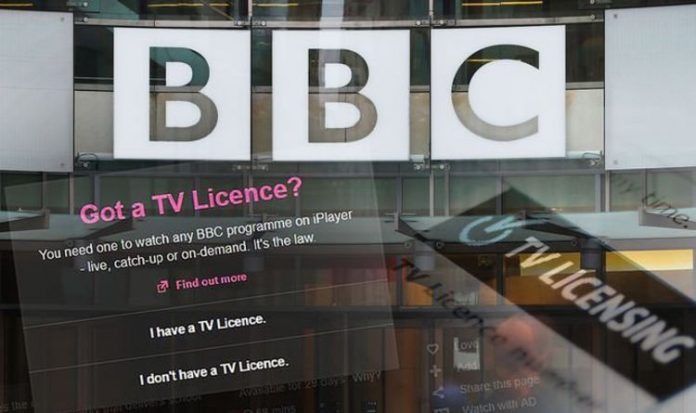The corporation was accused of “lacking diversity of thoughts” by Professor Philip Booth who told Express.co.uk BBC wokeness had gone too far with its decision to ban the word “fishermen” when referring to women working in the fishing industry. He said: “It’s part of the political bias within the BBC that people tend to be attracted to that industry who have a particular world view.
“And naturally they reflect that worldview in everything they choose to do.
“And this isn’t new, it’s just different.
“So in the 1940s and 1950s, people who were attracted into the media industry, had a really very conservative and paternalistic worldview.
“So that was very much reflected in the BBC’s attitudes and broadcast outputs.
“I would agree with that (BBC woeness has gone too far). And it’s quite common within the entertainment industry and broadcast media much more than print media, where there is more diversity of thought I think.
READ MORE: BBC bias: Corporation news output receives lowest impartiality score
“The problem is ironically, it’s a lack of diversity of thought.
“So if you try to put your hand up at the BBC and said ‘Men is an inclusive adjective, it’s always included men and women, especially when it pertains to people like fishermen, let’s carry on using it’, you would probably be just ostracised.
“So there’s a lack of diversity of thoughts, I think within the BBC and they do tend to follow these trends.”
The Institute of Economic Affairs fellow said he belives the BBC should become a subscription service, giving people the opportunity to choose whether to pay for their broadcasting or not.
Ofcom conducted an annual survey covering the period April 2019 to March 2020 in which the broadcasting regulator asked audiences if they believed news programmes they watched on each of the main television channels were free of bias. But in the latest blow for the BBC, the Corporation ranked bottom with a score of just 58 percent.
Sky News led the way with 69 percent, followed by Channel 4 (66 percent), ITV (63 percent) and Channel 5 (61 percent).
This is the first time the BBC has finished bottom of the impartiality rankings when compared to all other British broadcasters.
The shock result also marks the first time the Corporation has been overtaken by Channel 5 as perceptions among the British public of the latter’s impartiality improve.
Ofcom said some people surveyed for the annual report told it their perception of the BBC news output are influenced by the broadcaster’s brand, funding mechanism and portrayal across the wider media.
DON’T MISS:
Laura Kuenssberg: BBC editor admitted people ‘tried to silence her’ [VIDEO]
BBC DISASTER! Corporation savaged for ‘marginalising the middle-aged’ [REACTION]
DISASTER for BBC as Ofcom finds ‘decreasing satisfaction’ in over-55s [DATA]
The regulator warned future relationships between the BBC and its audiences could be “jeopardised” if it does not address audience concerns around impartiality.
Ofcom said: “We learned that people’s views of the impartiality of BBC news are shaped by a range of factors, only some of which relate directly to its news and current affairs content.
“Some told us that their views were influenced by the BBC brand, its funding mechanism and its portrayal across wider media.
“Once again our research shows that audiences rate impartiality as the lowest-scoring aspect of the BBC’s delivery of this purpose.
“There is a risk that future relationships between the BBC and its audiences could be jeopardised if audience concerns around impartiality continue to grow.”







